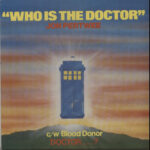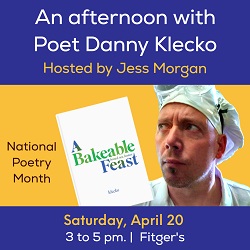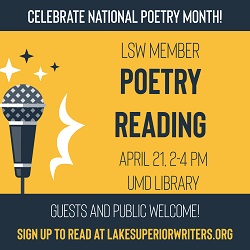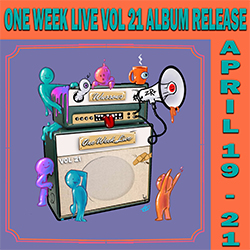Graduate Study in the Twin Ports
I am lucky enough to have been declared the director of graduate studies in the Master of Liberal Studies degree at UMD.
It made me think that a guide to local grad programs would be helpful. So I built one. Which programs listed below are you an alumnus from? And what advice might you have for new students?
(Please stay away from the “100 reasons not to go to grad school; I have that advice covered here.) This is about best counsel for those who have made the decision to attend.
Arts & Humanities
- Communicating Arts, UW-Superior
- English, UMD
- Liberal Studies, UMD
- Music, UMD
- Visual Arts, UW-Superior
Business
- Sustainable Management, UW-Superior
- M.A. Management, College of St. Scholastica
- Master of Business Administration (MBA), College of St. Scholastica
- Business Administration, MBA, UMD
Health, Education & Human Services
- Counseling (M.S.E.), UW-Superior
- Educational Administration (M.S.E.), UW-Superior
- Instruction (M.S.E.), UW-Superior
- Reading (M.S.E.), UW-Superior
- Special Education (M.S.E.), UW-Superior
- Bachelor’s to Doctor of Nursing Practice, College of St. Scholastica
- Doctor of Physical Therapy, College of St. Scholastica
- Graduate Teaching Licensure, College of St. Scholastica
- Master of Social Work, College of St. Scholastica
- M.S. Athletic Training, College of St. Scholastica
- M.S. Exercise Physiology, College of St. Scholastica
- M.S. Nursing, College of St. Scholastica
- M.S. Occupational Therapy, College of St. Scholastica
- Physician Assistant (starts 2016), College of St. Scholastica
- Advocacy and Political Leadership, MAPL, UMD
- Education-Master of, MEd, UMD
- Education, Special – Special Education, M.Sp.Ed., UMD
- Education, Teaching, and Learning, EdD, UMD
- Environmental Education, MEEd, UMD
- Social Work, MSW, UMD
- Tribal Administration Governance, MTAG, UMD
- Communication Sciences and Disorders, MA, UMD
- Pharmacology, MS, Ph.D, UMD
- Medical School Programs, UMD
Sciences
- M.S./Ph.D. Program in Integrated Biosciences Biology, UMD
- Water Resources Science Biology, Chemistry and Biochemistry, Geological Sciences, Physics, UMD
- Chemistry and Biochemistry Graduate Program Chemistry and Biochemistry, UMD
- Civil Engineering, M.S. Civil Engineering, UMD
- Computer Science, M.S. Computer Science, UMD
- Electrical Engineering, M.S. Electrical Engineering, UMD
- Engineering, M.S. Swenson College of Science and Engineering, UMD
- Geological Sciences, M.S. Geological Sciences, UMD
- Engineering Management, M.S. Mechanical and Industrial Engineering, UMD
- Environmental Health and Safety, M.S. Mechanical and Industrial Engineering, UMD
- Applied and Computational Mathematics, M.S. Mathematics and Statistics, UMD
- Physics, M.S. Physics, UMD
Recommended Links:
Leave a Comment
Only registered members can post a comment , Login / Register Here













7 Comments
JP Rennquist
about 11 years agomoosetracks
about 11 years ago[email protected]
about 11 years agoTony D.
about 11 years ago[email protected]
about 11 years agoGwendolyn
about 11 years ago[email protected]
about 11 years ago